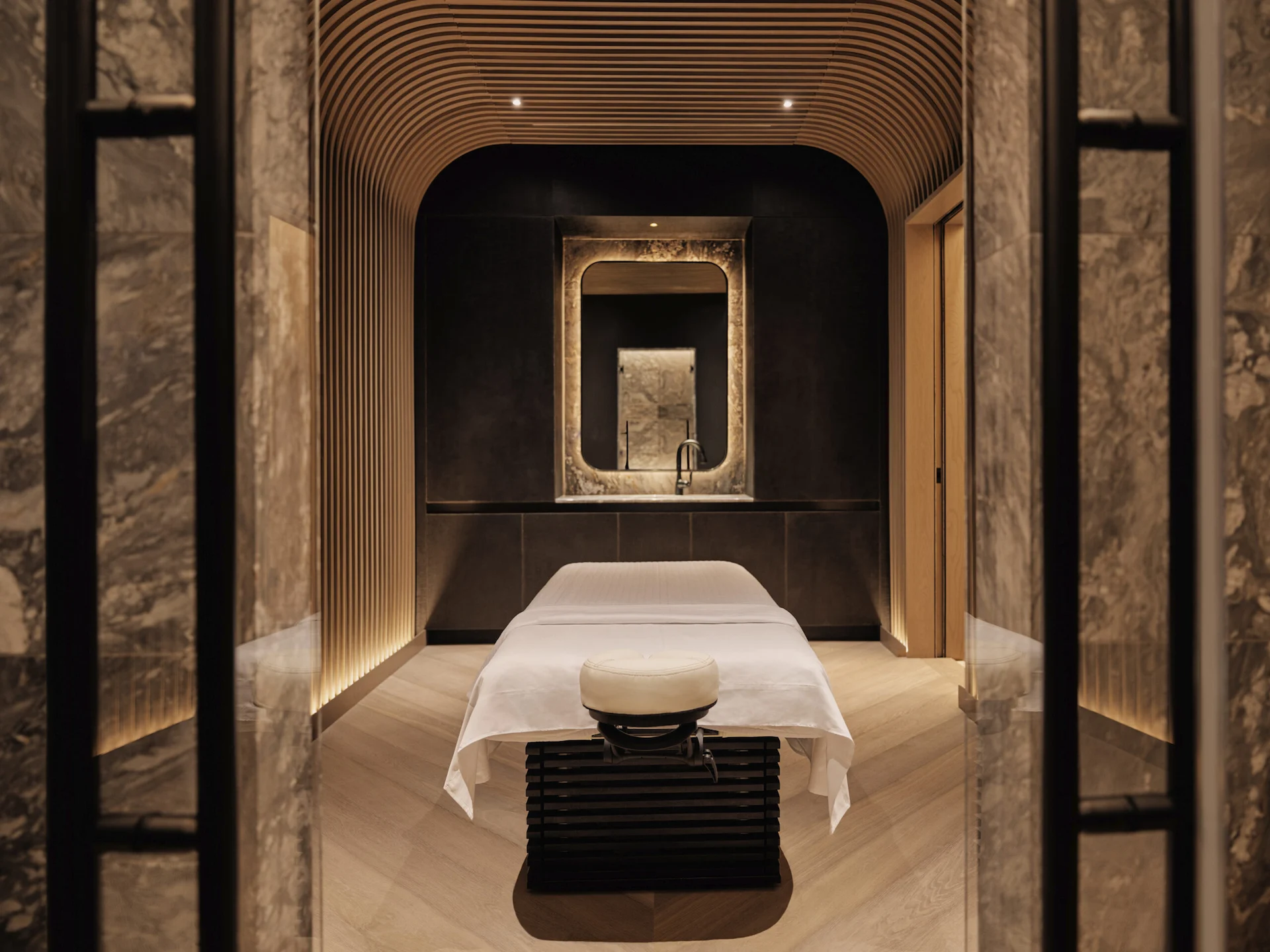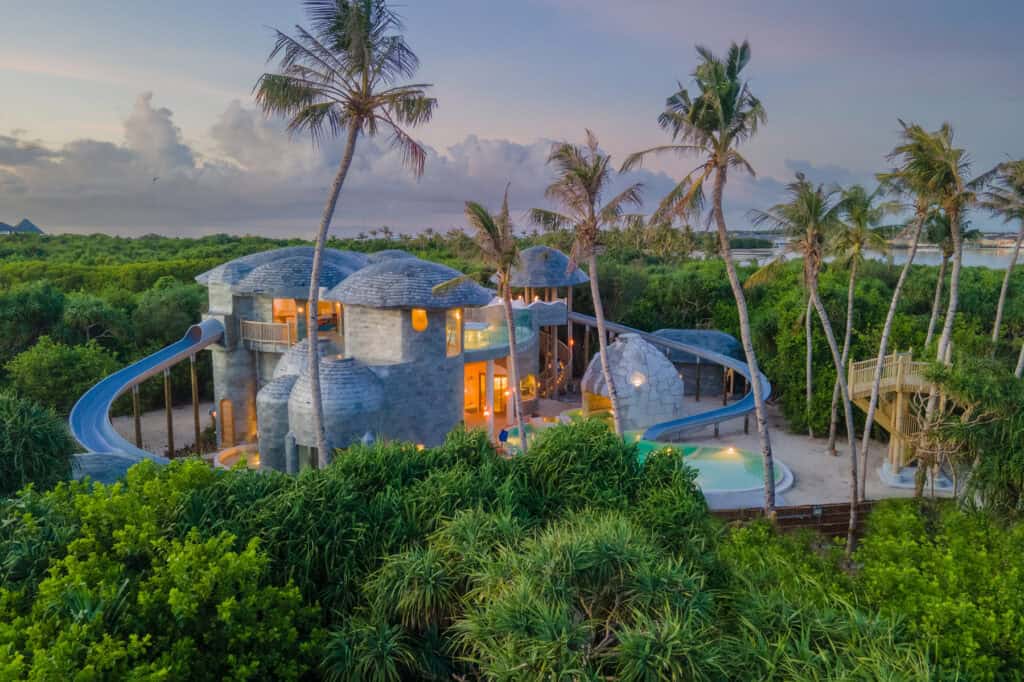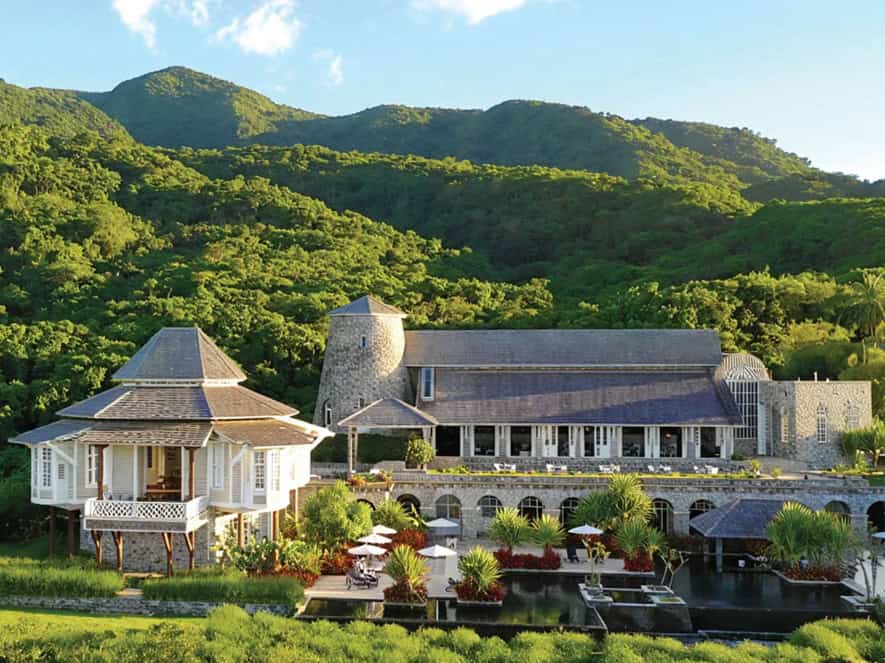Crafting spa experiences for over a decade, Jeremy McCarthy has an impressive background in luxury wellness, from the Four Seasons Spa to Starwood Hotels. Since 2014, Jeremy has been Group Director of Spa and Wellness for the Mandarin Oriental Hotel Group, applying his background in psychology and his passion for fitness to the renowned hotel group’s 31 spas. Compare Retreats talks with Jeremy about the psychological impact of spas, and how a digital detox can benefit everyone.

Can you tell us about your professional and personal wellness journey so far? I started in the hospitality industry with a fitness and recreation background. I was a personal fitness trainer and a lifeguard at the swimming pool at a resort in California, but I loved the customer service aspect of working in luxury hospitality so I never left that segment.
Can you discuss your studies and training in positive psychology and how your knowledge has helped you in your role as the director of spa and wellbeing at Mandarin Oriental? I’ve always believed that the spa experience is fundamentally a psychological one. A good (or bad) spa experience is all about what is going on inside peoples’ heads while in the spa. When I studied positive psychology, I wrote my capstone on “The Psychology of Spas & Wellbeing” which I later published as a book. This research has been foundational for much of my work in the spa industry. I apply it to everything I do.
You’ve spoken before about the ‘psychological impact’ a spa experience can have on someone—what are some of the factors that affect this? Spas offer psychological experiences that are increasingly scarce in the modern world: time in silence, separation from technology and the nurturing touch of another human being. These are the luxuries of the modern age. Our grandparent’s generation needed physical experiences—they needed to rest their bodies from the physical demands of work. But today people need to move their bodies and rest their minds. Spas are a great place for mental recovery.

What has been the personal highlight of your career to date, and what has been the biggest challenge? I am most proud of my work with the Spas at Mandarin Oriental. When I joined the group, we already had an amazing reputation for being one of the best spa brands in the world. I didn’t know if I would be able to make an impact. But I feel like we keep reinventing ourselves and that we are doing a good job of adapting to the changing times and I’m proud of that. My biggest challenge was probably when I was managing the spa portfolio for Starwood Hotels and Resorts just because of the sheer size of the company. I had over 100 new spas in development and it was hard to keep track of it all.
You manage the spa and wellness of 31 major hotels around the world: how do you achieve a balance between work and wellness? I don’t like this concept of work/life balance because it assumes that work and wellness are mutually exclusive. For me, there is no separation: my wellness lifestyle is a key driver of my productivity and professional success. I don’t think I could be successful in one without the other.
What nutritional and lifestyle rules do you try to live by 90% of the time? I am very movement-oriented so I try not to sit still very often. I have a standing desk at work and I try to spend more time standing than sitting. I have a diverse movement practice so I get some kind of vigorous exercise every day but it’s hard to describe because it’s so varied. I follow a movement practice known as the Ido Portal Method under a very talented teacher in Hong Kong, Andres Vesga: he has heavily influenced my approach to movement and fitness. From a nutrition standpoint, I’m pretty much an omnivore. But I appreciate the benefits of vegetarianism and veganism and so I try to take time away from meat when I can.
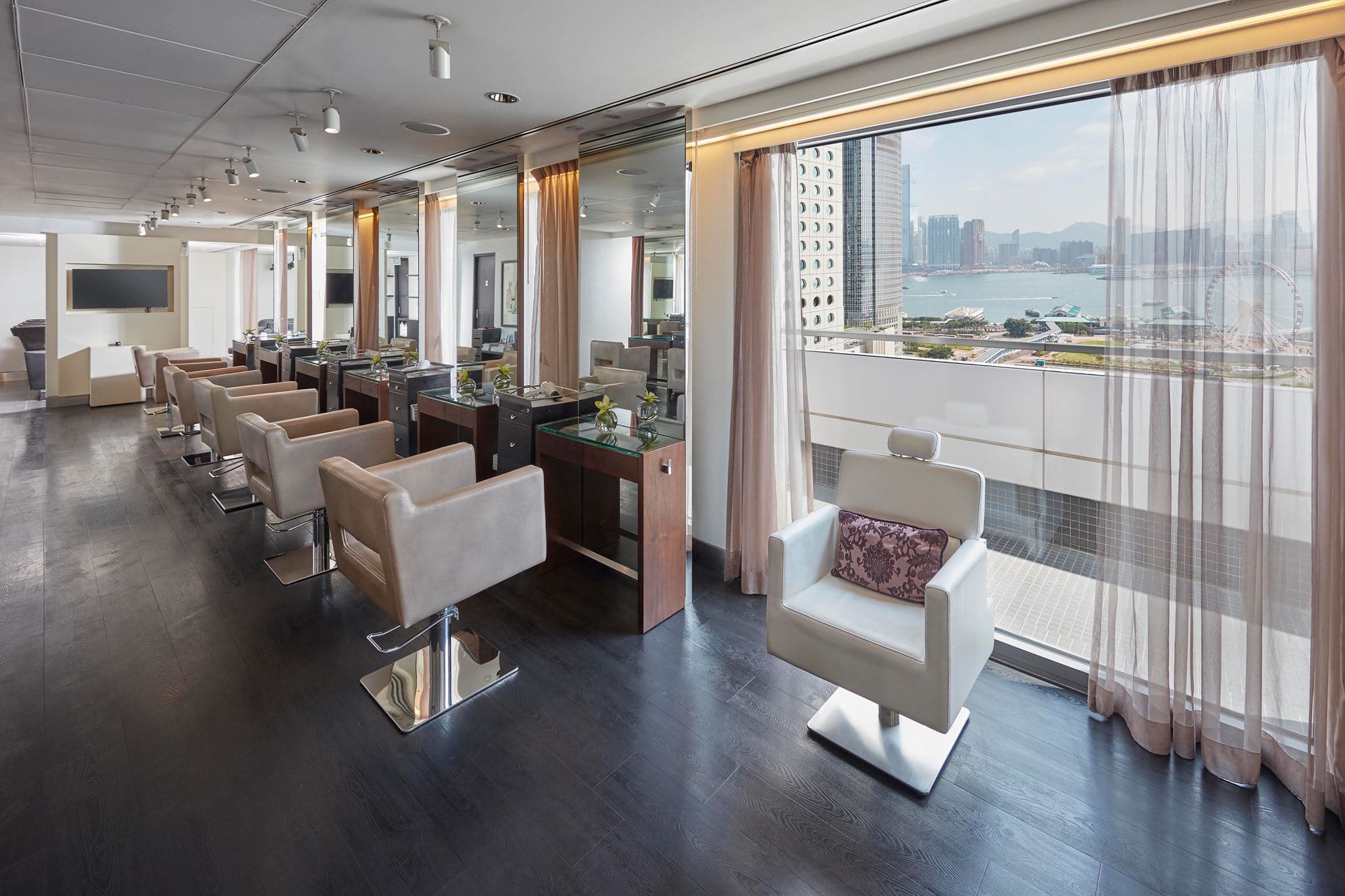
The spas in both the Mandarin Oriental Hong Kong and Landmark Mandarin are exceptional in different ways. What are some highlights that guests should try at each spa and what are the main strengths of both? Both spas are renowned for their unique therapies that are quite different from what is offered in other spas in Hong Kong. The Landmark Mandarin Oriental, for example, offers cutting edge Bastien Gonzales Pedi:Cure by Albin, their podiatrist-trained pedicurist. Sense of Balance is one of their traditional Chinese therapies (ask for Vali). The fitness centre offers an incredible array of movement classes with master yoga teachers (I recommend Dilip or Master Yogesh) and physiotherapists from the local Joint Dynamics team (try Primal Movement with Ben.) In addition to these talented experts, the strength of Landmark is their amazing heat and water experiences, so go early and soak in the vitality pools or the amethyst crystal steam room.
The Mandarin Oriental Hotel is known for the beauty and barbering services so I would recommend a traditional barber experience or a consultation on hair health in the Mandarin Salon with Andrea, the resident trichologist. The Mandarin Spa specialises in traditional therapies, so here I would recommend experiencing the traditional Shanghainese Pedicure with Samuel or Ben. They’ve also just renovated one of their suites with a unique heated Japanese Ganbanyoku bed which you have to experience. Both spas offer our Digital Wellness Escape Package to help people take a break from technology and recover the areas where we tend to hold stress and tension while using our devices.
Is there one treatment at a Mandarin Oriental spa in Hong Kong that you keep on going back to over the years and what benefits do you receive from it?
Our most popular treatment is the Oriental Essence Massage and it is still my favourite. It is the best of East and West with a combination of Swedish and Asian massage techniques and our signature oils which were created by master aromatherapists drawing on the five elements of Traditional Chinese Medicine.
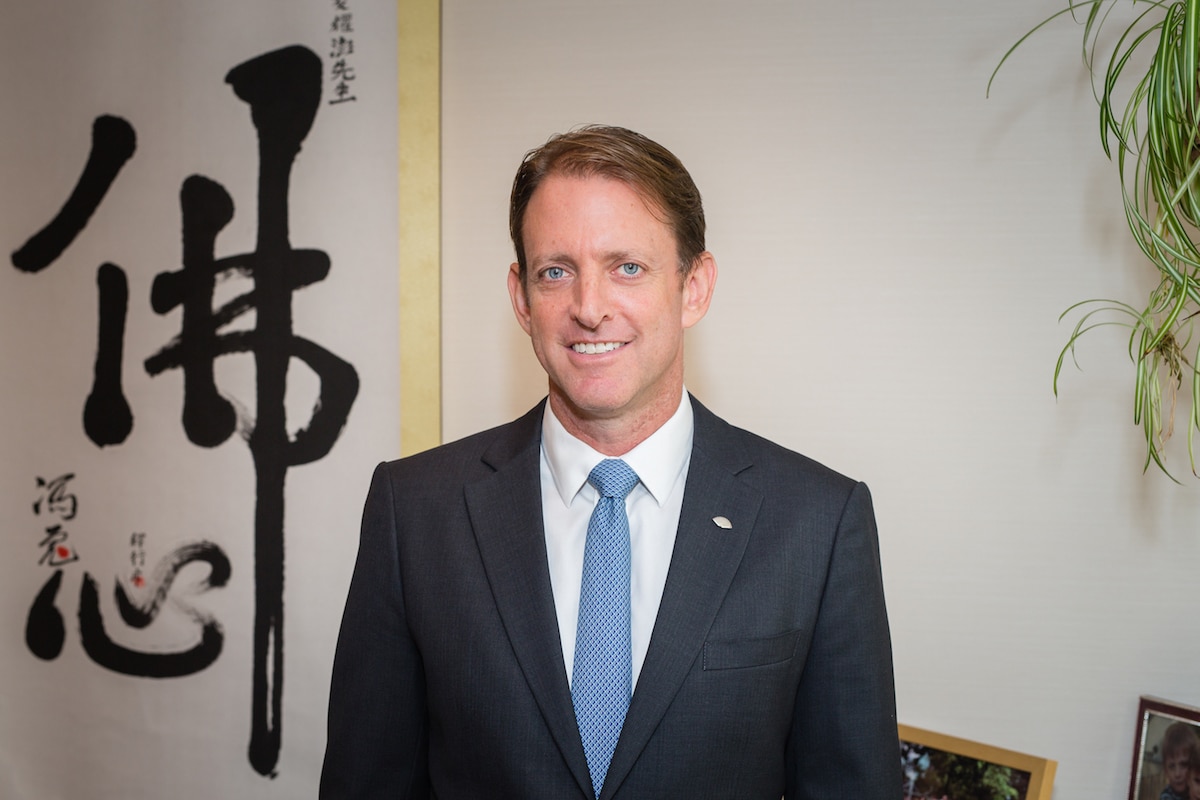
What new wellness offerings can we expect to see at Mandarin Oriental properties in the future? First, we’ve fallen in love with Middle Eastern treatments. Since opening new resorts recently in both Turkey and Morocco we are obsessed with hammams and we have been putting them into more of our new spas in development. So you are likely to see Middle East-inspired spa treatments in our new spas opening in London, Beijing, Oman and Melbourne. Secondly, we are changing the paradigm on our hotel gyms to eliminate some of the machines and give more space back for organic movement practices, which are increasingly popular. And third, I think mindfulness will continue to grow in popularity and we are very interested in expanding our mindfulness and meditation offerings into more locations around the world.
Mandarin Oriental introduced a Digital Detox wellness experience earlier this year. What are some benefits of stepping away from our devices, and do you think there’s a way for us to start using technology to improve our wellness? I always say that the problem with technology is not that it’s bad . . . it’s that it’s too good. Technology is so good that we make sacrifices in sleep, relationships, movement, productivity, safety, wellbeing, and we are so distracted by our devices that we often aren’t aware of the sacrifices we are making. I see this as a big problem that humanity needs to solve. There’s no going back, so we won’t get rid of our technology, but we do need to learn how to use it in a way that supports human well-being. Our whitepaper “Wellness in the Age of the Smartphone” covers the issue in-depth.
Beyond Mandarin Oriental spas, which spas would you most want to visit and why? I would love to visit the Five Elements Spa in Bali: I’ve heard great things about it, and Bali is a perfect destination for a wellness retreat.

